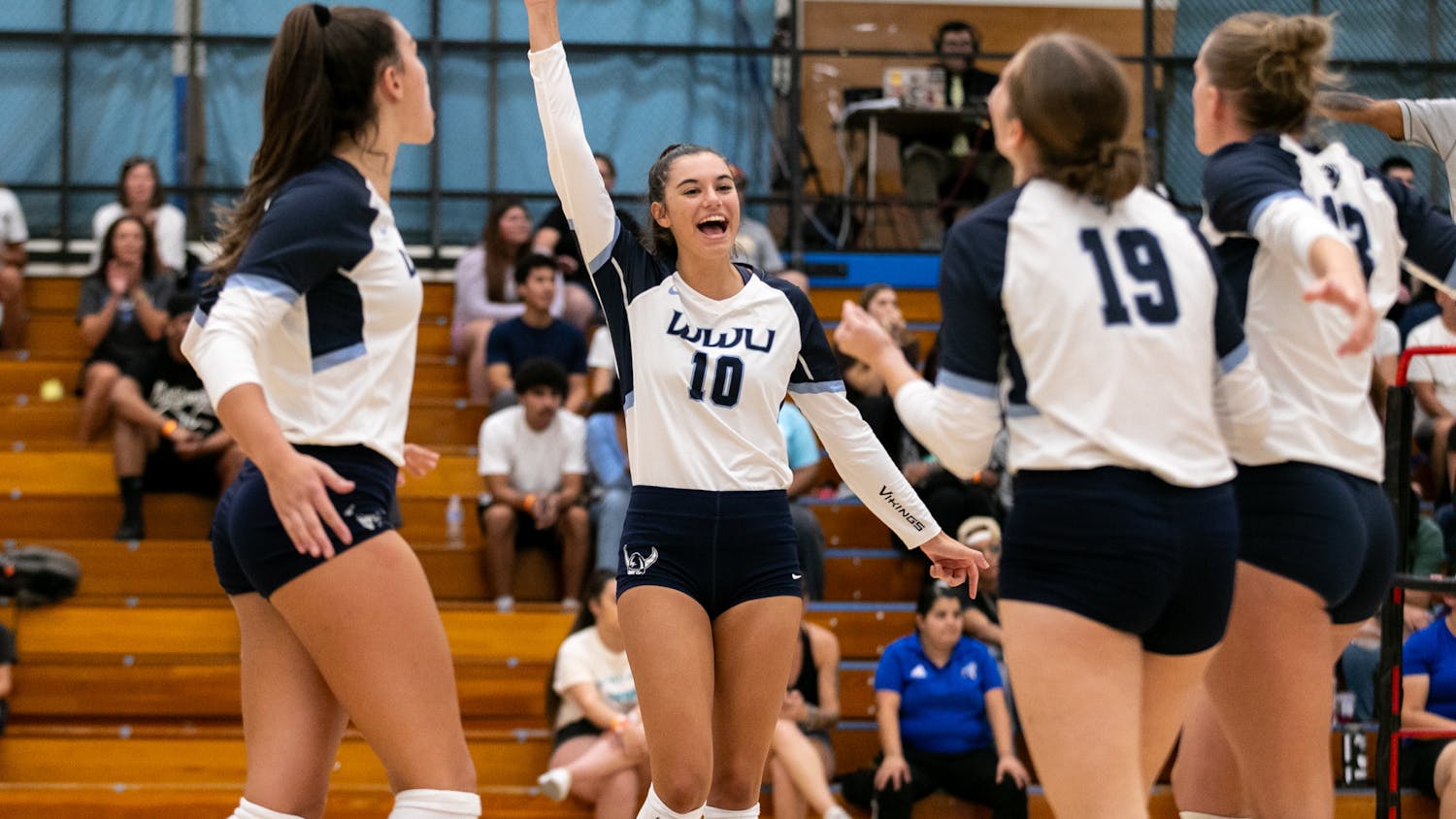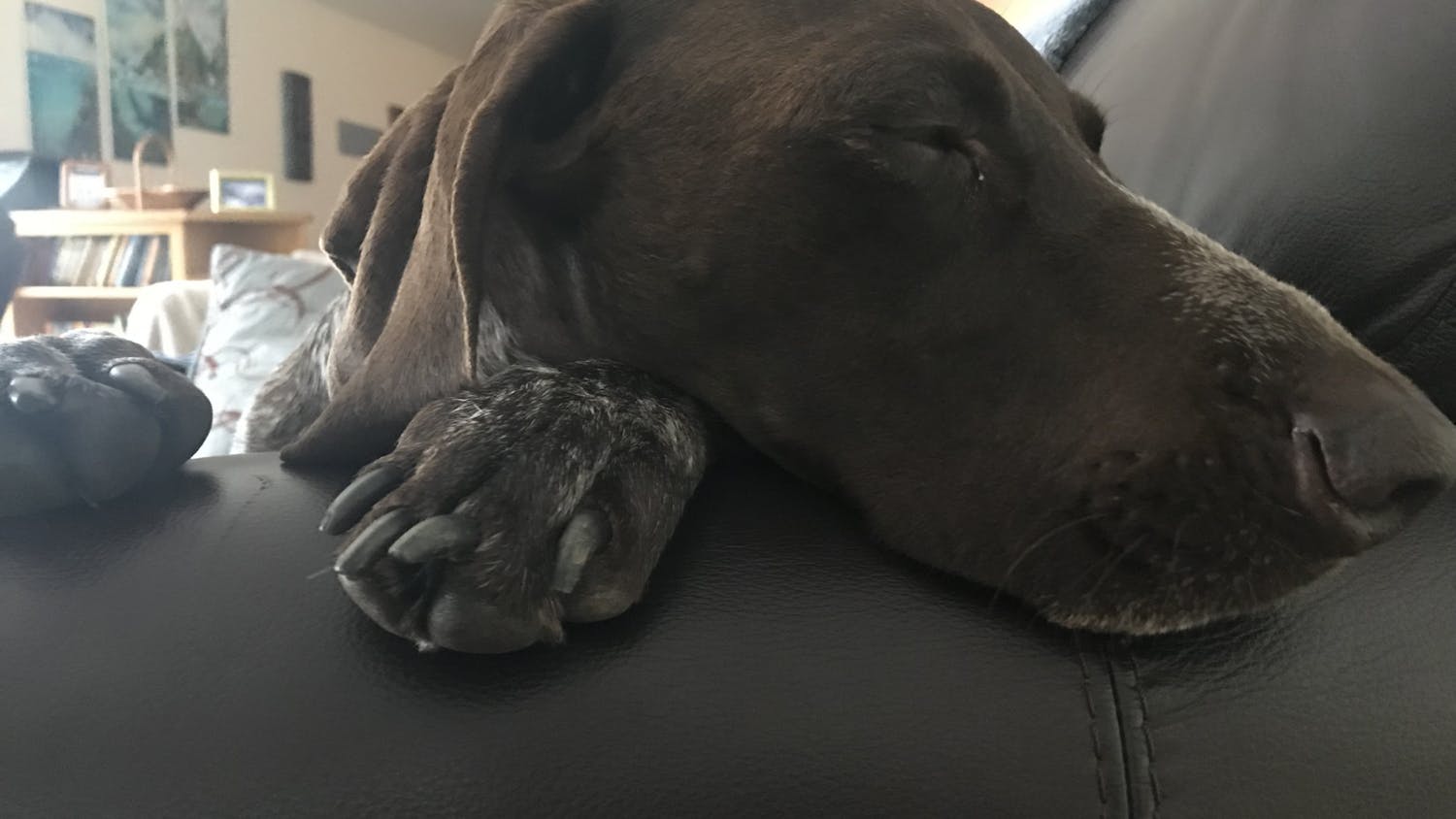In the military, they call it a smoke deck. It could be a bench or a simple ring of sandbags, but for a service member jonesing for a cigarette it’s a place of temporary sanctuary; a place where they can be themselves.
The power of the smoke deck is to bring together people of diverse cultures with contrasting ideals, opinions and ways of seeing the world they’re fighting for.
For students at Western who have served in the military, their on-campus sanctuary is the Veterans Service Office.
“It’s a rare community,” sophomore Reuben Cuenca said. “It’s hard to define. We all had the same job, but none of us are the same at all.”
Cuenca, 30, joined the Navy straight out of high school and spent 10 years working in cryptology breaking codes.
Cuenca said relating to his fellow classmates can be hard, but, at the same time, he doesn’t want to isolate himself. He noted fellow students can be afraid to talk to veterans due to fears of triggering a post-traumatic stress disorder episode. Cuenca believes this fear comes from the way movies and media often represent PTSD patients as angry and violent.
“I’d say [veterans are] more sad about losing somebody than anything,” Cuenca said. “You go to boot camp with somebody. You go to school with them. You go off on deployment. Then that person gets deleted from the universe. You’re never going to see them again. They’re never going to text you back. They’re just gone. That really f---s with you.”
“There’s a definite degree of self-sufficiency that you obtain in the military. You learn to take care of yourself. You learn how to get up and keep going.”
Robert Kenyon
Cuenca said veterans often commemorate the loss of a friend by adorning their arms in bracelets — names etched on the inside — or tattoos. None of their perceived hardships should influence student perception, he said.
“I have no idea why people don’t approach veterans more. They’re kids too,” Cuenca said. “The only difference is that we took a job that was dangerous. They’re just picking up their lives where they left off.”
Junior Robert Kenyon said college for student veterans can feel more purposeful because they have a clearer path. Kenyon, 28, said his years in the Army gave him a stronger mindset that is now helpful in an academic setting.
“There’s a definite degree of self-sufficiency that you obtain in the military,” Kenyon said. “You learn to take care of yourself. You learn how to get up and keep going.”
A large difference in age and experience comes with being a student veteran. Kenyon said it can be strange taking a class with someone 10 years his junior. He’s come to view it as an opportunity to experience different perspectives.
For Cuenca, the military can only change so much, and he noted the humor in how little people change over time.
“I always thought things would just click,” Cuenca said. “No. I’m still lazy. I have math homework I still do at the last minute. I still study really fast for midterms the day before or an hour before.”
It was difficult for Cuenca to look at social media during his time in the Navy and watch his friends go through their years at college. Seeing postgraduates working at Starbucks reassured him he made the right choice, he said.
“I’m totally glad I went to the military first, even though I did question it the entire time,” Cuenca said.
Tucked away in Old Main, the Veterans Service Office provides an instant community sometimes hard for most incoming students to find. Kenyon said not having to worry about finding a place to fit in cuts down on the stress of returning to school.
The Veterans Service Office has a constant stream of people flooding through the door. Kenyon said spending time with those who took on the roles of tutors, mentors, therapists and friends eased the hardship of entering into the school environment.
This kind of support can be key to veterans, who may feel awkward about getting assistance with school.
“Veterans are hard to get help to because they don’t want to ask,” Cuenca said. “They don’t want to feel needy. They don’t want to be a weak link. Nobody in the military wants to feel like that.”





